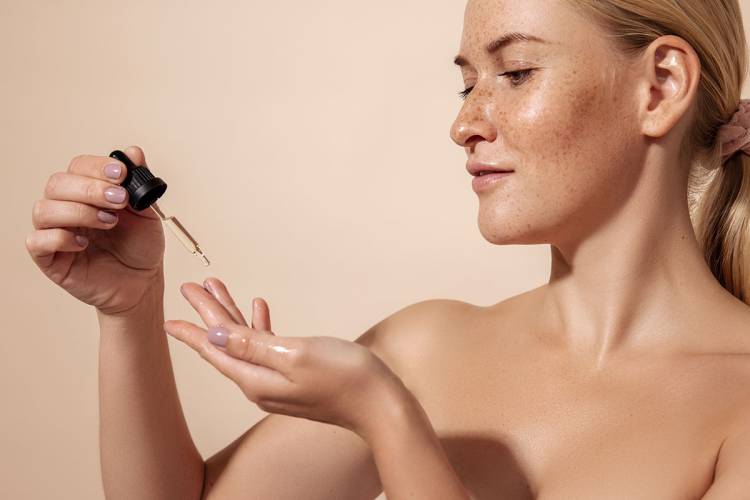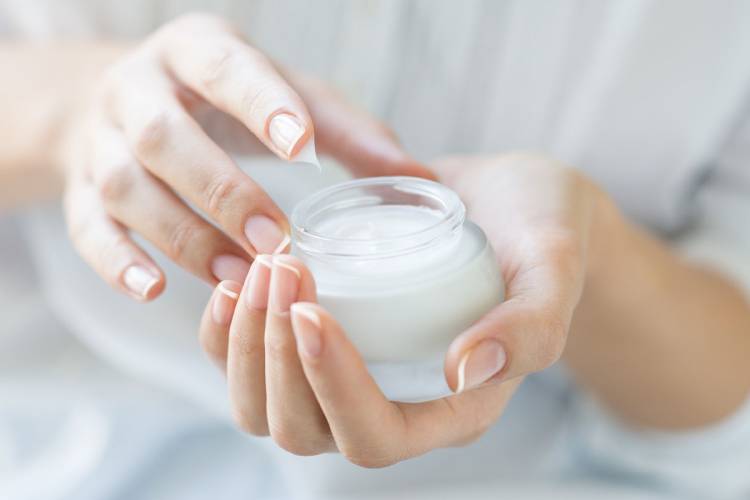Facial beauty products that cannot be used in summer
Discover the difference between photosensitive and photosensitising and find out which beauty products you should avoid in summer. Look after your skin and choose which cosmetics to use wisely.
health and beauty
Share
Although we all know that sun cream is essential all year round, especially in summer, our facial routine during the months covering winter and summer differs greatly. This is due to the skin’s needs, but there are also agents in our cosmetics that can damage the skin if we use them during the months when we are more exposed to the sun. Below, we tell you which cosmetics products we can use during the summer and which ones we can’t.

Difference between photosensitive and photosensitising
The term “photosensitive” means that a certain element is sensitive to the action of the sun. Therefore, photosensitive products are those that should be preserved away from the light so prevent them from altering their properties and losing their effect. We can use photosensitive products in summer, but always alongside sun protection.
Photosensitising products are those that, combined with solar radiation, induce a reaction with negative consequences for our skin, such as blemishes, allergies and even burns. Photosensitising or phototoxic cosmetics are those that we should use in our night-time beauty routine and, some of them, only during the winter months.
Which cosmetics active ingredients cannot be used in summer
. Retinol: despite being a very good agent for preventing wrinkles, it already causes skin irritation during use, which increases further with the sun. For that reason, although it can be used in very low concentrations at night, it is advisable to remove it from our summer routine and reintroduce it in September or when we aren’t going to be exposed to the sun.
. Glycolic acid: by renewing the cells, the skin is more exposed to the sun and this can cause blemishes or burns more easily, even when using sun protection. During summer months, it is advisable to use it in very low concentrations at night or stop using it and reincorporate it into our routine when we aren’t going to be as exposed to the sun.
. Retinoic acid: this is a highly effective active ingredient against photoaging and is also used to treat acne and hyperpigmentation of the skin. We recommend removing it during summer months, but, if in doubt, it is best to consult a doctor.
. Salicylic acid: it is suitable for people with greasy skin and with a tendency to suffer from episodes of acne. It is a chemical exfoliant that regulates the production of sebum. As with other chemical exfoliants, we recommend removing it during summer months, but, if in doubt, it is best to consult a doctor.

Which cosmetics active ingredients can be used during summer
. Vitamin C: this is a photosensitive agent, so it becomes inactive with the sun, but is not photosensitising, so we can introduce it into our summer routine, always with sun protection.
. Hyaluronic acid: apart from its multiple anti-ageing properties, it is a basic for all year round, but even more so during summer. It has the ability to retain water and keep our skin hydrated.
. Collagen: it helps to recover the firmness and elasticity of the skin. It also helps to correct wrinkles, since it reduces their thickness and improves the look of the skin. Moreover, cosmetics with collagen contain moisturising and nutritional active ingredients for our skin. Perfect for the summer!






